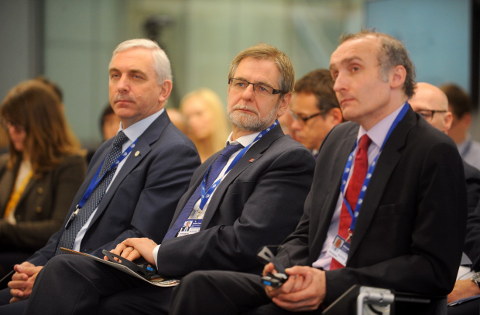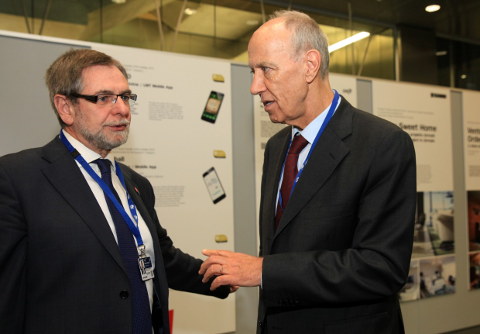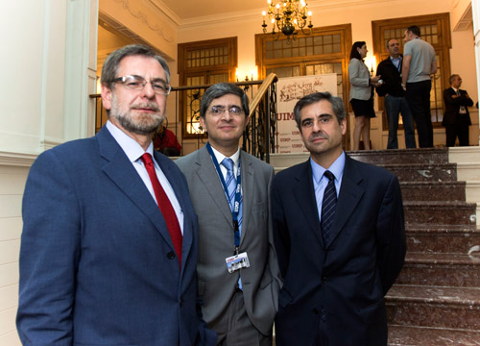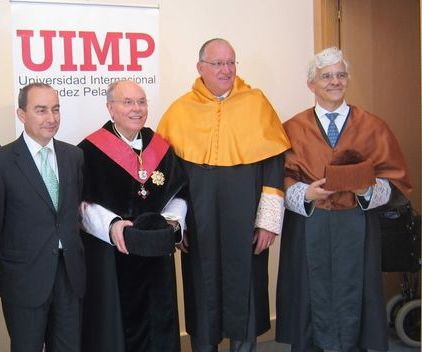10.20.16
Links 20/10/2016: Linux 4.10 Preview, ONF and ON.Labs to Merge
![]()
Contents
GNU/Linux
-
Desktop
-
‘Why Use Linux?’ Answered In 3 Short Words
This post is not a typical post. I’m not going to change your life, or teach you a new trick. Instead I’m going to drag you down the rabbit hole…
I had to Google a rather dry grammatical enquiry from my sister earlier. See, she’s in the process of going back to college to study nursing and has become fastidious about punctuation in the process.
She turned to me because her iPhone did not, in her words, ‘give the correct answer’.
-
How does Linux need to change to achieve the ‘year of the Linux desktop?’
The year of the Linux desktop has long been the unicorn of the open source movement. People have looked for it for quite a long time, but nobody’s ever seen it. But hope springs eternal, and for some the quest for the year of the Linux desktop goes on.
-
-
Kernel Space
-
Linux kernel bugs: we add them in and then take years to get them out
Kees Cook is a Google techie and security researcher whose interests include the Linux Kernel Self Protection Project.
The idea of “self-protection” doesn’t mean giving up on trying to create secure code in the first place, of course.
It may sound like an irony, but I’m happy to accept that writing secure code requires that you simultaneously write code that is predicated on insecurity.
-
storaged – next evolution step of udisks2
What do you think about the above goals? Do you think GNU/Linux distributions should and will adopt storaged as a replacement for *udisks2″? Would you like your favorite distribution to do so? Or do you see a really bumpy road ahead? Please tell us what you think in the comments and if you know about somebody who should read this post and participate in the broader discussion, don’t forget to let them know and send them the link!
-
Ten Years of KVM
We recently celebrated 25 years of Linux on the 25th anniversary of the famous email Linus sent to announce the start of the Linux project. Going by the same yardstick, today marks the 10th anniversary of the KVM project — Avi Kivity first announced the project on the 19th Oct, 2006 by this posting on LKML…
-
Linux Foundation Certified Engineer: Karthikeyan Ramaswamy
Linux was part of my academics. I was introduced to Linux at the Anna University Bioinformatics Lab by my Professor Gautam Pennathur. After that introduction, I became truly interested in Linux and open source when I was doing my final year project with Professor Nagasuma Chandra in the bioinformatics department, Indian Institute of Science. It was an incredible journey with the different flavors of Linux as well as the scripting and programming languages. After learning about the history of Linux and open source software movement, I become an Individual supporter of The Linux Foundation and an Annual Associate Member of the Free Software Foundation.
-
Linux 4.9 Is Showing Some Performance Improvements On A Core i7 6800K
Now that Linux 4.9-rc1 is out, it’s onward to testing this new Linux kernel on the dozens of test systems at Phoronix. With some early testing on a Core i7 6800K Broadwell-E box, there are some promising improvements.
-
Linux 4.10 To Expose EFI Framebuffer Configuration
While Linux 4.9-rc1 was only released this past weekend, the EFI subsystem changes are already being staged for the next kernel cycle.
One of the EFI changes catching my attention for Linux 4.10 is that the EFI frame-buffer configuration will be exposed. This will allow for localized status strings during firmware updates.
-
Features You Won’t Find In The Linux 4.9 Mainline Kernel
While there are many new features in Linux 4.9, there is some functionality we’ve been looking forward to that sadly isn’t yet in the mainline kernel tree.
-
Blockchain technology can help save the lives of millions of refugees by giving them a verified identity
What if you had no proof of who you are? What would you do when the bank manager asked for ID when you tried to open an account or when the hospital asked for your documentation?
You wouldn’t be able to function, at least not easily. Billions face this problem internationally, but now blockchain technology is helping those with no paper proof of existence get the same services as those with “official” identification.
-
Open Networking Foundation and ON.Lab Merge
As Software Defined Networking (SDN) has matured from just being a theoretical concept to a production reality, consolidation is now happening in SDN advocacy efforts as well. Today the Open Networking Foundation (ONF) and ON.Lab announced that they would be merging, bringing the two groups’ SDN efforts under one umbrella organization.
[...]
There is also a connection between ONF and the Linux Foundation, with the ONOS and CORD projects led by ON.Lab. Parulkar said that with the ONF merger, the ONOS and CORD boards and governance will continue unchanged and they will continue to be Linux Foundation Collaborative projects.
-
ONF to Merge With On.Lab
The Open Networking Foundation (ONF) is merging with On.Lab, creating one entity that will curate standards such as OpenFlow while developing software projects such as ONOS and the Central Office Re-Imagined as a Datacenter (CORD).
-
SDN groups shack-up to promote standards, open software development
-
ON.Lab and ONF to combine open source SDN efforts
-
SDN Champions ONF & ON.Lab Tie the Knot
-
ONF, ON.Labs to Merge
-
ONF will merge with ON.Lab to advance SDN adoption
-
Linux Kernel 3.12.65 LTS Released with Updated Wireless Drivers, PowerPC Fixes
It’s been only two weeks since the release of the Linux 3.12.64 LTS kernel maintenance version, and today’s Linux kernel 3.12.65 LTS update attempts to add various improvements, updated drivers, as well as patch some of the bugs reported by users. According to the appended shortlog and diff from Linux kernel 3.12.64 LTS, a total of 80 files were changed, with 516 insertions and 283 deletions in Linux kernel 3.12.65 LTS.
“I’m announcing the release of the 3.12.65 kernel. All users of the 3.12 kernel series must upgrade,” said Jiri Slaby. “The updated 3.12.y git tree can be found at: git://git.kernel.org/pub/scm/linux/kernel/git/stable/linux-stable.git linux-3.12.y and can be browsed at the normal kernel.org git web browser: http://git.kernel.org/?p=linux/kernel/git/stable/linux-stable.git;a=summary.”
-
Systemd – Progress Through Complexity
A play on the Audi slogan: Vorsprung Durch Technik. Except we’re going to talk about something that is clearly not progress. Systemd. Roughly 6 years ago, Systemd came to life as the new, event-based init mechanism, designed to replicate the old serialized System V thingie. Today, it is the reality in most distributions, for better or worse. Mostly the latter.
Why would you oppose progress, one may say. To that end, we need to define progress. It is merely the state of something being newer, AKA newer is always better, or the fact it offers superior functionality that was missing in the old technology? After all, System V is 33 years old, so the new stuff ought to be smarter. The topic of my article today is to tell you a story of how I went about fixing a broken Fedora 24 system – powered by systemd of course, and why, at the end of, my conclusion was one of pain and defeat.
-
Graphics Stack
-
Mesa 13.0 Release Candidate 1 Arrives With Intel OpenGL 4.5 Complete
-
Mesa Hasn’t Been Branched Yet Due To LLVM Issues
-
VC4 Gallium3D Driver Now Has Better Texture Upload Performance
-
Intel OpenGL vs. Vulkan Linux Benchmarks – Mesa Git + Linux 4.9
-
Looks like Mesa has hit OpenGL 4.5 for the open source Nvidia ‘nvc0′ driver
It looks like in the last few days the ‘nvc0′ driver for Nvidia cards in Mesa has hit OpenGL 4.5 compatibility, joining Intel and AMD. Another great week, see this commit for the magic.
The last extension needed was ‘GL_ARB_enhanced_layouts’ from OpenGL 4.4 (with OpenGL 4.5 already done) which is now enabled for ‘nvc0′.
All the different driver naming schemes sure are confusing. You can see more about the Nvidia codenames here. This states the ‘nvc0′ driver is for the ‘Fermi’ generation and some of ‘Kepler’.
As always, you can keep track on the MesaMatrix website.
-
-
-
Applications
-
3 Twitter clients for the Linux command line
While this may seem like a solution searching for a problem, for some people interacting with Twitter in a terminal window makes sense. There’s less distraction at the command line than with a desktop Twitter client or even Twitter’s web interface. On top of that, command-line clients are fast and their interfaces are generally quite clean.
No matter why you want to work with Twitter in a terminal, there are applications out there for you. Here’s a look at three Twitter clients that you can run from the command line.
-
Gammu 1.37.90
Yesterday Gammu 1.37.90 has been released. This release brings quite a lot of changes and it’s for testing purposes. Hopefully stable 1.38.0 will follow soon as soon as I won’t get negative feedback on the changes.
-
Instructionals/Technical
-
pass – The standard unix password manager
-
How to install Docker on Ubuntu 16.04
-
USB Killers – Hardware and Software options to destroy your data (or devices)
-
Upcoming Free Webinars From The Linux Foundation
-
Introducing Linch-Pin: Hybrid cloud provisioning using Ansible
-
How to encrypt a single partition in Linux
-
Build a Debian package against Debian 8.0 using Download On Demand (DoD) service
-
How to Install Git and Setup Git Account in RHEL, CentOS and Fedora
-
How to use IP (replacement for ifconfig) Command on Linux
-
-
Games
-
‘Duke Grabowski, Mighty Swashbuckler’, a great looking point-and-click adventure is now on Linux
The game doesn’t show up in the newly released list for SteamOS/Linux games on Steam, as it gained a Linux version after the original release. I really do hope Valve fix that one day.
-
SteamOS 2.95 Beta Adds Bluetooth Firmware for Killer 1535 Card, Security Fixes
Today, October 19, 2016, Valve’s engineers working on the SteamOS gaming platform have pushed a new Beta update to the brewmaster_beta channel for the upcoming major release of the Debian-based operating system.
SteamOS 2.95 Beta arrives three weeks after the release of the SteamOS 2.93 Beta build, but it looks like it’s a small maintenance update adding Bluetooth firmware for the Killer Wireless-AC 1535 card, implemented in the firmware-nonfree package, and the latest security patches from upstream.
As you might know, SteamOS is based on Debian Stable a.k.a. Debian GNU/Linux 8.6 “Jessie,” which means that it’s always in sync with its software repositories, getting the newest security fixes and software updates. Therefore, SteamOS 2.95 Beta updates the BIND9, NSS, NSPR, and libgd2 packages.
-
Vendetta Online 1.8.393 MMORPG Updates Oculus Rift Version with Gear VR Changes
Guild Software developers finally made time to update the news page of the Vendetta Online MMORPG (Massively Multiplayer Online Role-Playing Game) game and let us know what new features landed in the latest updates.
It appears that Vendetta Online received a total of eight maintenance updates since our last report back in August 2016, which was about version 1.8.385. The latest stable update is now versioned Vendetta Online 1.8.393, and it introduces an updated Oculus Rift version of the game with updates from Samsung Gear VR.
-
Football Manager 2017 now has a playable beta if you own the game on Steam, Linux included
Football Manager 2017 [Steam] is the latest in the line of FM games from Sports Interactive and SEGA and it supports Linux once again. The developers confirmed to me on twitter that Linux is included in the beta.
The game is due to release in about two weeks. Sadly, I will not be getting a review key for it, so I will not be publishing any thoughts on it.
-
The developers of ‘Can’t Drive This’ will donate all Linux revenue from October to charity
The game ‘Can’t Drive This’ [Steam] only recently came to Linux, and the developers have decided that 100% of October’s revenue made from Linux sales will go to a penguin charity.
It’s an amusing sounding game too, as the track is built by someone else as you’re racing. Sounds challenging, and fun!
-
Space colony builder ‘Maia’ has another small patch, starting to fix the issues I have with it
I’m always impressed by the level of effort put into ‘Maia’ [Steam, Official Site] and I think once it’s finished it will be great. It has problems for sure, but this latest small patch aims to start sorting them out.
-
-
-
Distributions
-
New Releases
-
GParted 0.27.0 Open-Source Partition Editor Is Out with GRUB2 core.img Detection
Today, October 19, 2016, GParted and GParted Live developer Curtis Gedak proudly announced the release of the GParted 0.27.0 open-source partition editor software.
-
Clear Linux Now Powered by Kernel 4.8.1, Adds Wayland 1.12, GNOME 3.22 & Vim 8.0
Clear Linux Project’s Eva P. Hutanu informs the community about the latest updated components and new features implemented in the Clear Linux operating system during the past few weeks.
-
Solus 1.2.1 Linux Distro Released, Arrives With MATE Edition For The First Time
-
-
Red Hat Family
-
Red Hat brings enterprise mobile apps to its containers platform
Linux major Red Hat has unveiled its Red Hat Mobile Application Platform, a containerized offering designed to run in any public or private cloud or on-premise infrastructure that supports its Enterprise Linux. When used alongside Red Hat’s existing SaaS (software-as-a-service) mobile app platform, enterprises gain a wider set of deployment options to integrate, manage, and scale their mobile app initiatives to meet their business objectives, said the company.
-
Red Hat flaunts new curriculum offering
The solution provides higher education institutions with the support to offer exams and courses centred around Red Hat technology.
“Red Hat Academy goes beyond just implementing the software,” said Mustapha Hill, Channel Ecosystem Leader, MENA, Red Hat. “With this initiative, we actually advise universities on how they can implement software training into their curriculum. We do this because we want graduates to eventually be able to gain employment in the market based on their knowledge of Red Hat technology.
-
Bosch and Red Hat join initiative to develop cloud-based IoT platform components
The Eclipse Foundation open source community is collaborating with Bosch Software Innovations, Red Hat and Eurotech to develop interoperable IoT components that can be deployed to a Cloud platform. We are constantly reminded that IoT is all about the ecosystem, but such extensive industry networks are only as valuable as their ability to work together and interoperate without unnecessary complications.
This latest collaboration will be part of the existing Eclipse IoT Working Group, a community of 26 open source IoT projects hosted by the Eclipse Foundation, though still a separate project. An ecosystem within an ecosystem then. This is getting very confusing.
-
Red Hat Survey Shows Demand for Virtualization is Not Waning
Is virtualization still as strategically important to organizations as it was just a few years ago? According to a Red Hat survey of 900 enterprise IT administrators, systems architects and IT managers across geographic regions and industries, the answer is yes. Hybrid cloud computing and Linux containers are hot, but virtualization adoption remains on the rise, especially within the enterprise, according to the survey.
-
Red Hat and Ericsson sign open source deal
Red Hat is well known as probably the most successful company built entirely on open-source software. Building a business on top of open source is a hard thing, especially so back in the early days of open source when no one had any real idea how the economics of a product that was free would translate into commercial success.
But succeed it did, and Red Hat has created a huge business built entirely on offering services on top of open-source products.
-
Ericsson, Red Hat Partner on Open Source
-
Red Hat and Ericsson Announce Broad Alliance to Enable Pervasive Adoption of Open Source Solutions
-
Red Hat, Ericsson partner on cloud infrastructure
-
NethServer 7 RC1 Replaces Snort with Suricata, Adds Deep Packet Inspection
The development of the CentOS-based, server-oriented NethServer 7 operating system continues, and today, October 19, 2016, Alessio Fattorini informed Softpedia about the availability of the first Release Candidate (RC) version.
-
Finance
-
Analyst’s outlook: Verizon Communications Inc. (NYSE:VZ) , Red Hat, Inc. (NYSE:RHT)
-
Red Hat Inc.: Red Hat and Ericsson Announce Broad Alliance to Enable Pervasive Adoption of Open Source Solutions
-
Identifying Analyst Ratings Summary To Consider: Red Hat, Inc. (NYSE:RHT), Prologis, Inc. (NYSE:PLD)
-
Stock Update on Earnings & Estimates for Red Hat, Inc. (NYSE:RHT)
-
Analyst Reviews: Red Hat, Inc. (NYSE:RHT)
-
Flash in the Pan or Long Term Growth Play: Red Hat, Inc. (NYSE:RHT)
-
Insider Selling: Red Hat Inc. (RHT) EVP Sells 1121 Shares of Stock
-
Enterprise Financial Services Corp Sold shares of Red Hat Inc. (RHT)
-
Opvizor Performance Analyzer: Part 14 – Performance in real time for Red Hat Enterprise Linux
-
Activity Reported By SEC: Red Hat INC (RHT) Shareholder Smith Asset Management Group LP Upped Position by $48.09 Million as Stock Declined
-
-
Fedora
-
Announcing the Release of Fedora 25 Beta
The Fedora Project is pleased to announce the immediate availability of Fedora 25 Beta, the next big step on our journey to the exciting Fedora 25 release in November.
Download the prerelease from our Get Fedora site:
Get Fedora 25 Beta Workstation
Get Fedora 25 Beta ServerLooking for Cloud edition? Check out the section on Fedora Atomic below. Or, check out one of our popular variants:
Get Fedora 25 Beta Spins
Get Fedora 25 Beta Labs
Get Fedora 25 Beta ARM -
Fedora kernel scripting
When I joined the Fedora kernel team about 1.5 years ago, I was the first brand new person in a long time. My teammates had most of the infrastructure instructions for the kernel in their brains. Part of my new hire tasks were documenting the steps for working with the Fedora kernel. These days, I can do most of the day to day tasks in my sleep. The tasks are still somewhat manual though which leaves room for error. I’ve decided to correct this by scripting some of the more manual parts.
-
Going to FUDCon: Phnom Penh Edition
A little over a year ago, FUDCon APAC happened in Pune. I know because I lost a lot of nights sleep over it. The event also marked a turning point in my life because it coincided with my decision to move on from Red Hat and accept an offer with Linaro, a decision that I can say now was among the best I have taken in my life despite the very difficult choice I had to make to leave arguably the best team one could ever work with. FUDCon also brought me in touch with many volunteers from across Asia and it was interesting to see the kinds of challenges they faced when talking about Fedora and Open Source in general. That was also when I got to know Nisa and Somvannda from Cambodia better, especially when I had the chance to go over to Phnom Penh for APAC budget discussions. They had wanted to do a FUDCon in Phnom Penh in 2015 and we simply put out a better bid then.
-
Tommorow FOSSASIA meets PyLadies Pune
Tomorrow we have a special PyLadies meetup at the local Red Hat office. Hong Phuc Dang from FOSSASIA is coming down for a discussion with the PyLadies team here. She will be taking about various projects FOSSASIA is working on, including codeheat. In the second half I will be taking a workshop on creating command line shell using Python.
-
Deploy containers with Atomic Host, Ansible, and Cockpit
-
How to Install Atom in Fedora
A text editor is an important tool for developers, since they spend a lot of time using one. This article is about Atom, a cool modern editor.
Atom is a free and open source text editor developed in 2015 by Github. Its developer calls it “the hackable text-editor for the 21st century.” It offers vast language support, and easy customization. It also works as an integrated development environment, or IDE. It comes with some built-in packages, but you can install other packages too. Most of these are freely licensed and maintained by community. Of course, it’s also free of cost.
-
debugging koji build failures
From time to time builds fail in koji (The Fedora build system), and it’s good to know how to figure out where to look for the reason. Koji has a central hub that manages jobs and a bunch of builders that actually do the builds. When someone initiates a build you are talking to the hub and either uploading a src.rpm (for a scratch build) or telling it to use a particular git hash/repo for an official Fedora build. For official builds, koji will first generate a job to build the src.rpm from git and the packages lookaside cache with the source. This job will run on some builder thats ready and has capacity for it. Once the src.rpm is generated (or if you are providing it for a scratch build), the hub will generate build tasks for all the arches that are set in the target tag you are building to. Each one of those will go out to a builder of the right arch type that is enabled and has capacity, etc. If any of these fail, the entire build fails.
-
Fedora 26 Anaconda Installer Likely To Get Blivet-GUI
The Anaconda installer is never done evolving… The Anaconda installer will be updated, again, with Fedora 26 but hopefully won’t see the major fallout during one of its earlier reworks when it was in very bad shape. This time around they are just looking to add Blivet-GUI.
-
Bodhi 2.3.0 beta
Hello Planet Fedora! I’m pleased to announce that a Bodhi 2.3.0 beta has been deployed to Fedora’s staging infrastructure.
You can read the draft release notes if you’d like to learn about what has changed since Bodhi 2.2.4. The beta is currently deployed to staging if you would like to help with testing. If you would like to try the new packages for yourself, you can grab the beta from my bodhi-pre-release Copr repository.
-
Fedora Arrives on the Raspberry Pi
-
Fedora 25 Beta Linux distro now available for Raspberry Pi — here’s how to install it
-
Fedora Linux Distro Available For Raspberry Pi — Here’s How To Install It
-
-
-
Debian Family
-
Open Build Service in Debian needs YOU! ☞
-
Freexian’s report about Debian Long Term Support, September 2016
Like each month, here comes a report about the work of paid contributors to Debian LTS.
-
Derivatives
-
RaspEX Project Now Lets You Run Ubuntu 16.10 on Raspberry Pi 3 and 2, with LXDE
Today, October 19, 2016, GNU/Linux developer Arne Exton informed us about the immediate availability of a new build of his RaspEX project, which brings the latest Ubuntu OS to Raspberry Pi users.
-
Why Security Distributions Use Debian
What do distributions like Qube OS, Subgraph, Tails, and Whonix have in common? Besides an emphasis on security and privacy, all of them are Debian derivatives — and, probably, this common origin is not accidental.
At first, this trend seems curious. After all, other distributions ranging from Slackware and Gentoo to Arch Linux all emphasize security and privacy in their selection of tools. In particular, Fedora’s SE Linux can be so restrictive that some users would rather disable it than learn how to configure it. By contrast, while Debian carries many standard security and privacy tools, it has seldom emphasized them.
Similarly, Debian’s main branch consists of only free and open source software, its contrib and non-free branches not being official parts of the distribution. With many security experts favoring the announcement of vulnerabilities and exploit code rather than relying on security through obscurity, the way that many pieces of proprietary software do, this transparency has obvious appeal.
Yet although the advantage of free software to security and privacy is that the code can be examined for backdoors and malware, this advantage is hardly unique to Debian. To one or degree another, it is shared by all Linux distributions.
-
Why Use Linux, Systemd Complications, Debian’s Security
Why do so many security focused distributions choose Debian as their base? Bruce Byfield detailed several reasons beginning with Debian’s transparency in dealing with security issues and its free and Open Source commitment. But primarily, “security and privacy are built into Debian policy and procedure.” Keeping out intruders is better than trying to expel them he said. And finally, Byfield believes stability trumps “newness” everyday of the week especially since “newer packages are more apt to have vulnerabilities than older.”
-
Canonical/Ubuntu
-
Apache on Ubuntu Linux For Beginners: Part 2
You must set up your Apache web server to use SSL, so that your site URL is https:// and not http://. Sure, there are exceptions, such as test servers and lone LAN servers that only you and your cat use.
But any Internet-accessible web server absolutely needs SSL; there is no downside to encrypting your server traffic, and it’s pretty easy to set up. For LAN servers it may not be as essential; think about who uses it, and how easy it is to sniff LAN traffic.
-
Live kernel patches for Ubuntu
Kernel live patching enables runtime correction of critical security
issues in your kernel without rebooting. It’s the best way to ensure
that machines are safe at the kernel level, while guaranteeing uptime,
especially for container hosts where a single machine may be running
thousands of different workloads.We’re very pleased to announce that this new enterprise, commercial
service from Canonical will also be available free of charge to the
Ubuntu community.The Canonical Livepatch Service is an authenticated, encrypted, signed
stream of livepatch kernel modules for Ubuntu servers, virtual
machines and desktops. -
Canonical Ltd.’s Ubuntu Core
Canonical Ltd.’s “Snappy” Ubuntu Core, a stripped-down version of Ubuntu designed for autonomous machines, devices and other internet-connected digital things, has gained significant traction in the chipset/semiconductor market recently.
-
-
-
-
-
Devices/Embedded
-
Tiny OpenWRT WiFi module updated in $12 and $4 versions
The $12 “VoCore2” WiFi COM, which runs OpenWrt on a Mediatek MT7688AN, has won Indiegogo funding and has been joined by a $4 “VoCore2 Lite” version.
Back in 2014, we hailed the $20 VoCore computer-on-module as the smallest yet to run Linux, measuring only 25 x 25mm. Earlier this month, China-based VoCore launched an updated open source VoCore2 board on Indiegogo, and quickly surpassed its modest flexible funding goal. With a month left, the campaign decided to fulfill an informal stretch goal based on popular demand to produce a cheaper version.
-
3.5-inch SBC expands upon Skylake-H
Commell’s 3.5-inch “LE-37I” SBC features Intel 6th Gen Core CPUs, and offers SATA 3, dual GbE, dual Mini-PCIe with SIM, and a wide-range power supply.
Like Commell’s 3.5-inch LE-37G single board computer, the LE-37I supports Intel’s 6th Gen (“Skylake”) Core processors, but this model uses the higher-end, mostly quad-core Skylake-H series processors rather than the LE-37G’s 15W, dual-core, 6th Gen U-Series chips. No OS support was listed, but Linux and Windows should run just fine.
-
Phones
-
Android
-
Google Pixel review: The best Android phone, even if it is a little pricey
Welcome to the age of Google Hardware. Apparently tired of letting third-party Android OEMs serve as the stewards of Android handsets, Google has become a hardware company. (Again).
Earlier this year Google, launched a hardware division with former Motorola President Rick Osterloh at the helm. With the high-ranking title of “Senior Vice President,” Osterloh doesn’t oversee a side project—his group is on even footing with Android, Search, YouTube, and Ads. The hardware group is so powerful inside Google that it was able to merge Nexus, Pixel, Chromecast, OnHub, ATAP, and Glass into a single business unit. The group’s coming out party was October 4, 2016, where it announced Google Home, Google Wifi, a 4K Chromecast, the Daydream VR headset, and the pair of phones we’re looking at today: the Google Pixel and Google Pixel XL.
The arrival of the Pixel phones marks the apparent death of the Nexus line; Google says that it has “no plans” for future Nexus devices. With the new branding comes a change in strategy, too. The Pixel brand is about making devices that are 100 percent Google, so despite Google’s position as the developer of Android, get ready for Google-designed hardware combined with exclusive Google software.
-
Hands-on with the LeEco Le Pro3: services first, Android second
LeEco’s flagship Le Pro3 smartphone isn’t trying to compete with the Google Pixel, which puts modern Google services in front of a stock Android backdrop. After playing with the Le Pro3 at the company’s U.S. launch event in San Francisco today, I’m left feeling that it’s an easy, low-cost way to get the full experience of LeEco’s applications.
There are proprietary LeEco utility tools like the browser, email, calendar, messages, notes, and phone apps, along with bloatware like Yahoo Weather, but mostly the Pro3 is a means of distribution for the LeEco apps, like Live, LeVidi, and Le. There is also a standard-issue My LeEco app for managing services like EcoPass membership. Under it all is the EUI custom user interface.
If you swipe left from the home screen, you see videos that LeEco recommends you watch — not Google Now.
-
Report: Google reaches agreement with CBS for ‘Unplugged’ web TV service – Fox and Disney may follow
-
LeEco’s new Le S3 is a mid-tier Android phone to complement its LePro 3
The comparable Le 2 launched earlier this year in China and relied on a 10-core Mediatek chipset. The phone had the same battery and camera as the Le S3.
-
LeEco says ‘world’s first super bike’ with Android touchscreen will be available soon in US
LeEco, the Chinese tech giant, said today that its Android-enabled “super bike” will soon be available in the US. The bike has a 30-speed shift, on-board lighting, a fingerprint-scanner, built-in alarm and location tracker, and other nifty bells and whistles your average Schwinn bicycle probably lacks.
-
There might actually be an Android phone faster than Apple’s iPhone 7
There has been a somewhat sad irony in the smartphone market over the past few years. Android device vendors initially had some trouble competing with Apple’s iPhone, so one tactic they tried was to focus on specs and perceived power. Apple’s iPhone lineup has always appeared to be behind the times on paper, so it was an easy target in this regard; even now, the iPhone doesn’t pack an octa-core processor or eye-popping processor clock speeds like many Android phones.
Of course, Apple is all about efficiency and savvy smartphone users all know that the iPhone 7 and 7 Plus are the fastest and most powerful smartphones in the world despite appearing somewhat modest on paper. Interestingly, however, that title could be stripped from Apple’s new iPhones sooner than anyone expected.
-
7 reasons why the Google Pixel is the best Android phone
The new Google Pixel isn’t just another Android phone. It’s the best Android phone you can buy.
That’s because the Pixel has a lot of advantages you won’t find in any other phone.
-
Huawei announces next-gen Kirin 960 processor
Today at a press conference in Shanghia, China, Huawei officially unveiled the chip that’s expected to feature in its next flagship phone when it’s announced in early November. The Kirin 960 processor uses four of ARM’s new, high-performance Cortex-A73 cores and four low-powered A53 cores, produced using a 16nm manufacturing process. It’s also the first processor to use ARM’s Mali-G71 MP8 GPU for improved graphics and gaming performance.
-
Huawei introduces next-generation Kirin 960 chipset
-
Nokia CEO Will Attend MWC Next Year; To Launch 2 Android Phones In Early 2017?
-
OneNote can now use Android’s split-screen mode
-
Action Launcher 3 brings must-have features to Android
-
How to watch Amazon Video on your Android phone or tablet
-
How to remove virus from Android phone or tablet | How to avoid Android malware
-
Chrome’s experimental browser comes to Android
-
Chrome Canary arrives on Android with daily builds for hardcore browser geeks
-
You can now test the future of Chrome on Android
-
Android Pay gets a new, more stylish landing site
-
Samsung Gear S3 release date set for mid-November
-
SafetyNet API fails on some Android phones with unlocked bootloaders, Android Pay affected
-
Who killed Cyanogen?
Analysis Does European Commissioner for Competition Margrethe Vestager’s team pay close attention to the tech news? If not, perhaps they should.
Last week there was barely a murmur after Cyanogen Inc scaled back its ambitions. “Throwing in the towel” may be harsh – but the Android software company said it would henceforth be trying to interest phone makers in useful bits and bobs of code, rather than a platform alternative to Google, a customisable firmware.
Read more
-
-
-
Free Software/Open Source
-
A Doctor Learns How to Code Through Open Source
Judy Gichoya is a medical doctor from Kenya who became a software developer after joining the open source medical records project, OpenMRS. The open source project creates medical informatics software that helps health professionals collect and present data to improve patient care in developing countries.
After seeing how effective the open medical records system was at increasing efficiency and lowering costs for clinics in impoverished areas of Africa, she began hacking on the software herself to help improve it. Then she set up her own implementation in the slums outside Nairobi, and has done the same for dozens of clinics since.
-
Another Free Registry Software Option
-
Google Introduces Nomulus, An Open Source Cloud-Based Domain Name Registry
-
Google Nomulus announced as open-source; Here’s what it means for future of internet and domain names
-
Google Contributes Code Behind its Domain Registry
-
How to incorporate open source into computer science classes
This year at the Grace Hopper Conference I’m moderating a panel on why, and how, to incorporate open source into computer science classes. The panelists are four computer science instructors—all women—who have already used open source projects in their classrooms.
I’ve asked these four talented instructors to tell you a little about themselves, what teaching open source has meant for them and their students, and what you’ll hear at the Grace Hopper Celebration of Women in Computing, which is the world’s largest gathering of women technologists. This year the event is at the George R. Brown Convention Center in Houston, Texas from October 19-21.
-
Events
-
SUSE to Highlight Open Source Software-Defined Infrastructure Innovations at SUSECON 2016 in Washington, D.C.
For enterprises needing the flexibility of truly “open” open source technology, SUSE® today announced sponsors, keynotes and breakout session details for its upcoming SUSECON 2016 global end-user conference, to be held Nov. 7-11 in Washington, D.C.
SUSECON 2016 will showcase the latest software-defined infrastructure innovations in open source and Linux technologies. Big Data, DevOps, software-defined storage, cloud computing, zero downtime, data center standardization, Docker and containers, and SAP on Linux are among the topics geared to the needs of enterprise customers at SUSECON.
-
Nominations for 2017 Women in Open Source Awards Are Now Live
-
FOSDEM SDN & NFV DevRoom Call for Content
We are pleased to announce the Call for Participation in the FOSDEM 2017 Software Defined Networking and Network Functions Virtualization DevRoom!
-
-
Web Browsers
-
JS
-
JS Foundation Supported by IBM
-
Linux Foundation Announces the new JS Foundation
-
New version of popular Javascript runtime about to launch
-
Node.js 7 set for release next week
-
Linux Foundation Takes JavaScript Under Its Wings
The JS Foundation is now a Linux Foundation Project. The news came on Monday, first as an announcement on the Linux Foundation’s website, and then announced from the podium at the first day of Oscon Europe in London. “JS,” of course, stands for “JavaScript,” and as any web developer will tell you, it’s an essential part of almost all modern websites. Its use isn’t entirely web based, however. For instance, it’s used in PDF documents.
“We’ve been supporting a lot more than jQuery for a long time,” Kris Borchers, the JS Foundation’s executive director and former head of the JQuery Foundation, explained in his Oscon keynote address, “so the rebrand is to better reflect that. This also signals this effort to start creating a center of gravity for open source JavaScript.”
-
-
-
SaaS/Back End
-
Tips for contributing to a complex and large project like OpenStack
Becoming a QA Engineer for OpenStack was a career shift for Emily Wilson who has a background in research microbiology. But there’s an odd similarity between the two careers—they both involve figuring out what makes complicated systems work and where the weak points are. Paradoxically, this requires both a big picture perspective of a system, as well as an in-depth understanding of how the individual components function.
At the OpenStack Summit in Barcelona later this month, Emily is giving a presentation on her first year working in the OpenStack community. In this interview, she talks to me about contributing to a large and complex project like OpenStack.
-
With OpenStack users, dev and test are king
What’s OpenStack’s killer app? Users say it’s dev and test.
According to the latest OpenStack User Survey, most deployments of the open source cloud infrastructure project are on-premises private clouds for dev-and-test work that serve teams of fewer than 100 users.
-
-
CMS
-
Nasdaq Selects Drupal 8
Dries Buytaert announced today that Nasdaq Corporate Solutions has selected Drupal 8 and will work with Acquia to create its Investor Relations Website Platform. In the words of Angela Byron, a.k.a “Webchick”, “This is a big freakin’ deal.”
-
Nasdaq using Drupal 8 for new Investor Relations websites
-
Nasdaq Corporate Solutions Brings Open Source Technology to Enhanced Investor Relations Website Platform
-
-
Pseudo-Open Source (Openwashing)
-
Facebook’s Open Source Switch Guns for 100G [Ed: This is a lie. It’s not “Open Source”]
-
Facebook Shares Faster Networking Switch Technology
-
Open Compute Project accepts Facebook’s 100Gbps Wedge switch; Accton starts selling it
-
Facebook puts Cisco in a challenging situation
-
Facebook’s project to take on Cisco inspires such ‘cultlike’ devotion, it once caused a whole team to quit Apple
-
Facebook’s Open Compute Takes on Cisco (FB, CSCO)
-
Facebook’s 100-gigabit switch design is out in the open
-
Nasdaq Corporate Solutions Unveils Open Source Platform for Investor Relations
-
Satya Nadella Calls Windows “The Most Open Platform”. Well, What About Linux And FreeBSD? [Ed: Gartner Symposium ITxpo 2016 in Orlando a perfect place for Microsoft to lie; Plagiarism-leaning site repeats a disgusting Microsoft lie]
Gartner Symposium ITxpo 2016 in Orlando, Microsoft CEO Satya Nadella talked about the strengths of Windows as a platform. Calling it the “most open platform”, he said that it’s used to build products of billions of dollars worth. Well, we’ll have to wait and watch how open source advocates react to this claim.
-
Microsoft’s CEO Says Windows Is “The Most Open Platform” Ever [Ed: Not just a company of crooks of extortioners. It also lies. A lot. And without shame...]
-
Mesosphere half-year pledge: Fresh DC/OS open source baking [Ed: Very Microsoft-connected company that cannot be trusted]
-
-
FSF/FSFE/GNU/SFLC
-
Public Services/Government
-
Note to MSPs: Government Agencies Want More Open Source Software
One of the biggest trends today in the government sector is high demand for open source software. If you’re an MSP, it’s time to take notice.
Traditionally, open source was not a major part of IT operations for government agencies, at least in the United States. If you look at the list of the top 100 IT contractors for the federal government in 2016, you won’t see any names associated with open source software. What you will notice are several hardware and software companies that deal mostly with closed source code, such as Microsoft, IBM and Cisco.
-
-
Openness/Sharing/Collaboration
-
How open source helped beat Ebola
More than 10,000 dead, hundreds of thousands affected, and a world paralyzed with fear at the prospect of contagion. It is hard to fully grasp the impact of the 2014-2015 Ebola outbreak in West Africa, and the valor of those who put their own lives on the line to save the lives of others.
-
Emulate ‘Foundation Help Sierra Leone’
-
Open Data
-
Meet the Artist Building an Open-Source Database of Everyday Movements
The vibrance and diversity of East London is captured through the physical gestures of its inhabitants in Rosana Antolí’s Virtual Choreography, what the artist calls the world’s first digital archive of everyday motions. From the thumbs-up of a security guard to the flick of the wrist of a basketball player, the project combines performance and moving image to evoke daily life in the rapidly-changing neighborhood of Hackney Wick.
-
-
Open Hardware/Modding
-
SafariSeat: Open Source Wheelchair for Developing Countries
SafariSeat is a low cost, all-terrain and open source wheelchair designed for people in developing countries. It can be made in basic workshops using bicycle parts, which makes it easy to repair.
SafariSeat has launched a crowdfunding campaign on Kickstarter, to raise money to build as many chairs as possible, and develop an open source manual. Local workshops can then use the manual to make SafariSeats for their communities.
-
-
Leftovers
-
London Zoo escaped gorilla ‘drank five litres of undiluted squash’ during escape
A gorilla that sparked an emergency after breaking out of its enclosure at London Zoo opened and drank five litres of undiluted blackcurrant squash during his escape, the Zoological Society of London has revealed.
Members of the public and staff at the zoo were locked into buildings and ordered not to leave certain areas after Kumbuka, an adult silverback gorilla, made his escape on Thursday.
-
Health/Nutrition
-
Nearly 100 Organisations Press For Better Medicines Access In Asian Region RCEP Agreement
Nearly 100 health, community and development organisations working in the Asia-Pacific region issued a call for trade ministers negotiating the Regional Comprehensive Economic Partnership (RCEP) trade agreement to “reject provisions that would negatively affect access to generic medicines.” Negotiators are meeting from 17-22 October in China, and the concern is about the intellectual property chapter of the deal.
-
Indian Company Moves To Provide Affordable Insulin Biosimilar In Europe As Patents Rise [Ed: paywall]
-
-
Security
-
Security advisories for Wednesday
-
Security bug lifetime
In several of my recent presentations, I’ve discussed the lifetime of security flaws in the Linux kernel. Jon Corbet did an analysis in 2010, and found that security bugs appeared to have roughly a 5 year lifetime. As in, the flaw gets introduced in a Linux release, and then goes unnoticed by upstream developers until another release 5 years later, on average. I updated this research for 2011 through 2016, and used the Ubuntu Security Team’s CVE Tracker to assist in the process. The Ubuntu kernel team already does the hard work of trying to identify when flaws were introduced in the kernel, so I didn’t have to re-do this for the 557 kernel CVEs since 2011.
-
Reproducible Builds: week 77 in Stretch cycle
After discussions with HW42, Steven Chamberlain, Vagrant Cascadian, Daniel Shahaf, Christopher Berg, Daniel Kahn Gillmor and others, Ximin Luo has started writing up more concrete and detailed design plans for setting SOURCE_ROOT_DIR for reproducible debugging symbols, buildinfo security semantics and buildinfo security infrastructure.
-
Veracode security report finds open source components behind many security vulnerabilities [Ed: not a nice firm]
-
Open source components creating ‘systematic risks’, claims Veracode
-
Frankenstein approach to cybersecurity renders healthcare organizations dead last at fixing vulnerabilities
-
Black Duck Brings Its Open-Source Security Research to Northern Ireland [Ed: another Microsoft-connected FOSS FUD firm]
-
US software company in Belfast jobs boost
-
American software company to create 58 new jobs in Belfast
-
US IT firm Black Duck Software creates 58 new jobs in Belfast
-
US Black Duck Software creates jobs in Belfast
-
US IT firm Black Duck creating 58 new jobs for Belfast
-
American tech firm Black Duck to create 58 jobs in Belfast
-
Software firm Black Duck creates 58 new jobs in Belfast
-
Black Duck Forms Open Source Security Research Group in Northern Ireland
-
US Software Firm To Create 58 New Jobs In Belfast [Ed: 8 articles today frame this as some kind of “job creator”; such jobs are better off NOT EXISTING. The company is anti-FOSS, created by a Microsoft guy to attack the GPL]
-
Researcher unveils second Samsung Pay vulnerability
-
-
Defence/Aggression
-
Does Hillary Have The Temperment To Have Her Finger On The Nuclear Button?
If these reports are true, at this time of heightened tensions between Washington and the two other major nuclear powers, it would be extremely dangerous to have in the White House a person susceptible to uncontrollable rage, especially a person who would be staffed with neoconservative warmongers. A vote for Hillary could be a vote for nuclear war and the end of life on earth.
-
-
Transparency/Investigative Reporting
-
Ecuador Cut Off Assange’s Access to the Internet – So This Man Is Reading It to Him
After WikiLeaks founder Julian Assange’s internet service was cut off by the Ecuadorian embassy where he is holed up, one man sought to bring the internet back for the cloistered Queenslander.
Armed with a bullhorn and a sign that reads “Julian Assange’s Personal Internet Service,” Canadian comedian Bobby Mair has been standing outside the embassy shouting the news of the day to Assange.
-
Ecuador confirms it cut off Assange’s internet over Clinton emails
The Ecuadorian government confirmed Tuesday that it cut off WikiLeaks founder Julian Assange’s internet connection because of his anti-secrecy platform’s publication of emails allegedly stolen from Hillary Clinton campaign chairman John Podesta.
“The Government of Ecuador respects the principle of non-intervention in the internal affairs of other states. It does not interfere in external electoral processes, nor does it favor any particular candidate,” Ecuador said in a statement.
“Accordingly, Ecuador has exercised its sovereign right to temporarily restrict access to some of its private communications network within its Embassy in the United Kingdom.”
The emails are believed to have been stolen by the Russian government, and their release has been widely seen as a deliberate attempt to meddle in the U.S. election — although some Republicans have lauded their publication.
-
Assange’s Fate
The saga of Julian Assange seems to be drawing to a climax – one that will decide the fate of this historic whistleblower who, for years, has been a giant thorn in the side of governments everywhere.
His role in exposing the machinations of the US government over the years earned him the plaudits of liberals – until the Bush era ended, and he started exposing the crimes of the Obama administration and – most pointedly – the hypocrisy and venality of Hillary Clinton and her journalistic camarilla. Now we see right-wing figures like Sean Hannity and – yes! – Donald Trump praising and defending him, while the ostensible liberals take up the cry of the Clinton campaign that he’s a “pawn of the Kremlin” and a “rapist.” Even Glenn Greenwald, formerly a comrade-in-arms, who together with Assange helped Edward Snowden evade the not-so-loving arms of Uncle Sam, has lately sought to distance himself from the founder of WikiLeaks (over the value of “curation”). Nice timing, Glenn!
-
CNN Tells Viewers It’s Illegal For Them To Read Wikileaks Document Dumps. CNN Is Wrong
I cut the cord years ago, so the only time I stumble into cable “news” coverage is usually at the gym or airport. And time and time again I’m struck by how the empty prattle is more in line with dystopian satire than anything resembling actual news reporting or intellectual analysis. Even when these channels feature live breaking news stories, you’d be hard pressed to find a reporter willing to call up a source and confirm details of what’s happening, resulting in something that’s more akin to industrialized speculation than the polished news product of multi-billion-dollar media empires.
-
A Peculiar Coincidence
Today, Swedish prosecutors were meant to question Julian Assange in the Ecuadorean Embassy, something for which the Assange legal team has been pressing for years. They believe that once this step has been taken, prosecutors will no longer be able to keep from the scrutiny of Swedish courts the fact that there is no viable evidence whatsoever to back up the ludicrous allegations which have been made.
Frustratingly, Swedish prosecutors cancelled the interview last week, with no explanation given. Anyone would think they do not wish the investigation to progress… Then this same day Assange’s internet access is cut, WikiLeaks say by a state actor. To add to this string of coincidence, at the same time Russia Today has its bank accounts frozen by the Royal Bank of Scotland, again without explanation
This series of events are all aimed at those who seek to counter the neo-con narrative pumped out by the state and corporate media. It could be coincidence, but it looks like co-ordinated clampdown to me.
-
‘Nothing to See Here’ Is Pundit Takeaway on DNC Leaks
Hillary Clinton’s campaign emails have been trickling in for the past week. The leaks—along with previous DNC emails—provide intimate details about the inner workings of the campaign that may well soon elect the most powerful person on Earth.
The response from some journalists has been to analyse, dissect and find the most newsworthy bits. For others, the reaction has been to dismiss and downplay, turning the often cynical meatgrinder of American politics into a snooze barely worthy of discussion.
-
How to Really Really Upset the Foreign Office and Security Services
I left Julian after midnight. He is fit, well, sharp and in good spirits. WikiLeaks never reveals or comments upon its sources, but as I published before a fortnight ago, I can tell you with 100% certainty that it is not any Russian state actor or proxy that gave the Democratic National Committee and Podesta material to WikiLeaks. The claim is nonsense. Journalists are also publishing that these were obtained by “hacking” with no evidence that this was the method used to obtain them.
-
-
Environment/Energy/Wildlife/Nature
-
High-Selectivity Electrochemical Conversion of CO2 to Ethanol using a Copper Nanoparticle/N-Doped Graphene Electrode
Though carbon dioxide is a waste product of combustion, it can also be a potential feedstock for the production of fine and commodity organic chemicals provided that an efficient means to convert it to useful organic synthons can be developed. Herein we report a common element, nanostructured catalyst for the direct electrochemical conversion of CO2 to ethanol with high Faradaic efficiency (63 % at −1.2 V vs RHE) and high selectivity (84 %) that operates in water and at ambient temperature and pressure. Lacking noble metals or other rare or expensive materials, the catalyst is comprised of Cu nanoparticles on a highly textured, N-doped carbon nanospike film. Electrochemical analysis and density functional theory (DFT) calculations suggest a preliminary mechanism in which active sites on the Cu nanoparticles and the carbon nanospikes work in tandem to control the electrochemical reduction of carbon monoxide dimer to alcohol.
-
This Could Be Important, A Means To Readily Convert CO2 To Ethanol Electrically
-
October 2016: North Carolina Flooding
From October 11-16, the National Geodetic Survey (NGS) collected imagery of areas in North Carolina to help assess damage caused by river flooding due to heavy rains from the now-dissipated Matthew. The aerial imagery was collected in specific areas identified by FEMA and the National Weather Service.
-
‘How Do We Get to a Conversation in This Country About Climate?’
That a holiday honoring a man responsible for the murder, enslavement and exploitation of indigenous people should be occasion for the arrest of Native Americans acting in defense of water, land and life is not mere symbolism. The celebration of Christopher Columbus in US history books and culture is increasingly denounced, not only because of his devastating cruelty, but because of the way the fable erases the Taino people, legitimizing their oppression with an implicit view of history as the story of the winners.
-
The Debates Are Over, and No One Asked About Climate Change
From campaign finance reform to gun violence to poverty to education to LGBTQ rights, lots of important subjects were ignored by corporate media debate moderators in the presidential (and vice-presidential) debates. All of these topics are urgent and deserve a spotlight on the national stage. But one topic stands out as a non-factor: climate change.
Climate change—or, more accurately, climate disruption—is the greatest existential threat of our time. It threatens the economy, national security and health, exacerbates poverty and racism, and threatens to undermine or compound virtually all other issues discussed on the stage tonight.
-
-
Finance
-
Bradley Birkenfeld on Corporate Crime in the USA
And it is telling that he invited some of the nation’s top whistleblowers — including John Kiriakou who spent two years in prison — to be his guests.
One of the ironies that was not lost on anyone in the room is that increasingly, it’s not corporate executives but whistleblowers who are doing jail time.
Birkenfeld himself blew the whistle on his employer, the giant Swiss bank UBS, where the rich and famous stashed their millions in numbered accounts to evade U.S. tax authorities.
Guess who went to jail?
Birkenfeld.
-
I Won $104 Million for Blowing the Whistle on My Company—But Somehow I Was the Only One Who Went to Jail
Bradley C. Birkenfeld, 51, blew the whistle on the Swiss bank UBS for helping Americans avoid paying taxes, leading to about $15 billion in recovered tax money, fines and penalties. He spent two and a half years in prison, but he later was awarded $104 million by the I.R.S. for his role in exposing the scheme.
-
The government has finally come up with a plan for Brexit and it’s seriously worrying
Speaking at a trade fair on Tuesday evening, the environment secretary Andrea Leadsom outlined Britain’s plans for Brexit.
Prior to the referendum there was no plan for Brexit.
Turns out they weren’t bluffing.
Then Brexit meant Brexit.
[...]
According to an official press release, the goverment believes there could £185 million worth of exports to Japan “through demand for classic British products like tea, jam and biscuits and new opportunities for British beef.”
These predictions are ‘export wins’, meaning exports which would probably not have occurred without government support.
Leadsom was unveiling her department’s ‘International Action Plan for Food and Drink’, at a fair in Paris, France. Home of jam, and bourbons.
-
After CETA: the EU trade agreements that are in the pipeline
EU countries are considering signing the free trade agreement with Canada this month, but the Comprehensive Economic Trade Agreement (CETA) is far from the only deal the EU is working on. Various deals are being negotiated all over the globe, but they can only enter into force if the European Parliament approves them. Read on for an overview of negotiations in progress and a discussion of how it works.
-
ISDS Alone Makes TPP Unacceptable
-
What Are The NAFTA and TPP Trump and Clinton Fought About in the Debate?
The North American Free Trade Agreement (NAFTA), which went into force in 1994, and the Trans-Pacific Partnership (TPP), which is still pending ratification in the U.S. and elsewhere, are international trade agreements.
Trump is unambiguously, totally, absolutely, hugely opposed to both deals and any others in the future. He has held that position from Day One.
Clinton, less so. NAFTA was pushed through by Bill, and Hillary continues to defend it. As Secretary of State she strongly advocated for the TPP. She continued that advocacy during the first part of her campaign, right up until Bernie Sanders started to score points against her by opposing it. Hillary then shifted to also opposing it. No one knows what her stance will be if she is elected.
Meanwhile, the Obama administration is still hoping to force TPP through a lame duck Congress following the election. Hillary would then be free to shrug her shoulders come January and claim the TPP is not her responsibility.
-
Halloween Comes Early as Bloomberg Tries to Scare Kids With Debt Monster
Bloomberg (10/14/16) decided to get into the Halloween spirit by warning our kids about the national debt. The piece is headlined “A Child Born Today Comes Into the World With More Debt Than You.” Bloomberg was going to headline the piece, “Kids Worried That Universe Is Closer to Destruction Than When Parents Were Born,” but they decided it would be too scary.
-
‘Real Estate Investors Should Be Treated Like Any Other Businessmen’
In case you somehow managed to miss it, Republican presidential candidate Donald Trump acknowledged in the most recent debate that, for at least some period of time, he paid no federal income tax, explaining, characteristically, “That makes me smart.”
The statement revealed nothing we didn’t know about Trump, but it did raise a few questions for some folks about taxes—who pays what and why. Richard Phillips is senior policy analyst at Citizens for Tax Justice and the Institute on Taxation and Economic Policy. He joins us by phone from Washington, DC.
-
-
AstroTurf/Lobbying/Politics
-
Jill Stein: Democrats Govern by Fear—That Alone Should Cost Them Your Vote
Despite running a national campaign with an established political party, you were excluded from the presidential debates this year, but you’re scheduled to appear alongside Hillary Clinton and Donald Trump in a Democracy Now! special debate segment later this week. What do you expect from the candidates?
Jill Stein: Truthfully, I don’t expect much that is different from the prior two debates. We’ve had a very enthusiastic response to our forcing real issues and real answers into the debate. There’s a dire need for real discussion here, and the events of even the last week underscore that, now that we have been involved in an exchange of missiles with Yemen. The war is getting bigger and still there is no real discussion of this war, certainly not between Donald and Hillary. Their discussion of the war in the last debate amounted to the question of when exactly did Donald Trump take his various positions about Iraq?
-
Jill Stein Rips John Oliver for ‘Disingenuous Attack’ on Student Loan Debt Plan
Jill Stein is firing back at John Oliver after the “Last Week Tonight” host criticized Stein’s plan to cancel student loan debt.
“Coming from someone who made a stunt of buying and canceling medical debt on his show, and who claims to want alternatives to the failed two-party system, this disingenuous attack on the idea of cancelling student debt is both puzzling and hypocritical,” Stein’s campaign said in a statement.
In the segment, Oliver said that Steins’s plan involved the use of a process called quantitative easing, in which more money is printed and put into circulation.
-
Green Party: Don’t Vote for the Lesser of Two Evils
Ajamu Baraka is running for Vice President alongside Doctor Jill Stein. He made a campaign stop at Wayne State University Tuesday.
Baraka says now is a critical time for the Green Party to campaign aggressively.
“When do we draw a line in the sand and build a real alternative to corporate power? When do we oppose the agenda and the interest of the one percent? 2016 is the time to go ahead and make that change,” Baraka says.
Baraka says polls show that citizens are disgusted with both major party options for president.
-
Green Party VP hopeful in Detroit: Time to “break two-party monopoly”
It’s time to reject the “politics of fear,” and embrace third-party alternatives in American politics.
That was the message Ajamu Baraka had for an audience at Detroit’s Wayne State University on Tuesday.
Baraka, a longtime political activist who founded the U.S. Human Rights Network, is the Green Party candidate for vice president. He and running mate Jill Stein will appear on the ballot in 45 states, including Michigan.
Baraka says he and Stein represent an opportunity to “break the two-party monopoly” on government.
-
Where the ‘Bernie or Bust’ movement ends up
When YahNé Ndgo went to the first presidential debate at Hofstra University, on Long Island, she had a lot on her mind. She had to pack for a couple weeks of appearances and travel along the West Coast. She wanted to buy her 19-year-old daughter some groceries, and maybe even cook some dinner. She hoped they’d have some time to spend together in her hometown, Philadelphia, before Ndgo had to leave on an early morning flight to Arizona.
Ndgo wasn’t afraid of getting arrested for protesting the exclusion of Libertarian Party presidential candidate Gary Johnson and Green Party candidate Jill Stein from the debate, but she just didn’t have the time.
-
The Internet’s Best Rebuttals to John Oliver’s Attack On Jill Stein
If you have at least one outspoken Hillary supporting friend on your Facebook, chances are you saw a video of John Oliver’s latest hit piece on Jill Stein and Gary Johnson (who we don’t specifically cover in this article. However, his scandals are a lot less terrifying than the two “major party” candidates.)
-
WikiLeaks Just Dropped Bombshell About Hillary’s Health… The Truth, REVEALED!
WikiLeaks has been Hillary Clinton’s worst nightmare for months, but they just dropped the biggest bombshell yet: They have released emails which confirm just how serious Hillary Clinton’s debilitating health issues are.
First we learned, Hillary Clinton reached out to the NFL Commissioner in 2012 to ask for advice about dealing with her “cracked head” and head injuries.
But the details are even worse than that. It has been confirmed that the State Department staff, under Hillary Clinton, was told to research new drugs to treat Parkinson’s disease.
-
-
Censorship/Free Speech
-
Samsung Issues Takedown On Video Of Grand Theft Auto 5 Mod Turning Galaxy Note 7 Into A Weapon
In case you still don’t get what’s going on here, let’s lay it out for you: there’s a big story going on these days about how Samsung’s Galaxy Note 7 devices are, well, catching fire (some prefer exploding, but it seems that they’re mostly just setting themselves on fire). It’s causing injuries and Samsung is in full on panic mode. It’s now a felony to bring a Galaxy Note 7 on an airplane. This is the kind of stuff that business school case studies are written about years later, describing how Samsung handled this kind of crisis.
GTA 5, of course, is the video game Grand Theft Auto 5. And, like many video games, it’s possible to mod (modify) those video games to add in other elements. And so it appears that someone took the “ripped from the headlines” stories of exploding Note 7s and created a GTA 5 mod that made such things into weapons you could use in the game.
-
Udta Punjab: The film that challenged Indian censorship norms
The hard-hitting Bollywood drama, which exposed the scale of Punjab’s drug problem, was released in June after a court battle against India’s Central Board of Film Certification (CBFC) that had ordered 94 cuts.
-
Pam Geller Doubles Down On Claims That Facebook Removing Her Posts Is Section 230-Enabled ‘Government Censorship’
Pam Geller has decided there’s nothing like grabbing more shovels when you’re already in a hole. [And that means it's time for notable "leftist publication" Techdirt to crank out another "little hit piece" filled with "hyperbole and nonsense," apparently...]
Geller doesn’t like the way she’s been treated by Facebook, YouTube, and Twitter and has decided the problem is Section 230 of the CDA. So, she’s suing the DOJ for “enforcing” the immunity the government has granted to websites to shield them from being held responsible for user-generated content.
The DOJ responded to her lawsuit by pointing out that the DOJ doesn’t ENFORCE anything. It’s a defense service providers can raise when entities come after them for content posted by their users. In Geller’s mind, Section 230 gives service providers the “right” to arbitrarily remove content. She’s wrong, of course. It does no such thing. Instead, Section 230 prevents service providers from being held civilly liable for making “good faith” efforts to remove objectionable content. The rest of what Geller’s complaining about can be traced back to each provider’s terms of service and their individual translations of what that means in terms of Geller’s often-inflammatory content.
-
Frankfurt Book Fair 2016: Turkish Censorship Ignites Fairgoers’ Ire
“Stand by us, the other Turkey,” pleaded exiled Turkish journalist and newspaper editor Can Dündar, who presented the German translation of his new memoir We Are Arrested: A Journalist’s Notes from at Turkish Prison on Wednesday morning at the Frankfurt Book Fair.
Sitting alongside fair director Juergen Boos and his literary agent Nermin Mollaoglu of Istanbul’s Kalem Agency, Dündar spoke frankly about his frustration with the failure of Western countries to engage with the government of Turkish President Recep Tayyip Erdogan which has “imprisoned thousands, including hundreds of writers and journalists” and has “effectively ended freedom of speech as we know it.”
-
A new censorship
In what has been described by many as a hostage video of sorts, film-maker Karan Johar on Tuesday pleaded for his film Ae Dil Hai Mushkil to be released on October 28 without violence or disruption. The assertion of his patriotism — that he puts his country before everything else, that he respects the Indian Army and the sentiments of the time — may have made his detractors gleeful but it was disappointing to see a powerful and influential Bollywood personality brought down to his knees by political bullies and coerced into saying that he will not engage with talent from the neighbouring country given the prevailing circumstances.
-
Organization of American States Weighs in on Venezuela’s Censorship of the Press
The Secretary General of the Organization of American States (OAS) Luis Almagro expressed his solidarity with the Venezuelan newspaper El Nuevo País, after it was accused by the government of violating the constitution, and received a lawsuit as a result Saturday, October 8.
Representatives at the newspaper said they spoke with the OAS about the onslaught of attacks against freedom of the press and democracy by the Venezuelan government.
-
UK bank to close RT accounts, ‘long live freedom of speech!’ – editor-in-chief
She added that RT’s assets were not frozen and can still be withdrawn from the accounts.
The National Westminster Bank has informed RT UK that it will no longer have the broadcaster among its clients. The bank provided no explanation for the decision.
-
Naureckas: Trump Tape and Clinton Emails Are Both Legitimate–but Not Equivalent–Stories
-
Liberty student has anti-Trump article pulled from school paper
-
Liberty President Jerry Falwell Jr. defends decision to pull anti-Trump column
-
Falwell: Anti-Trump column in student newspaper was ‘redundant’
-
Liberty University President Jerry Falwell Jr. pulls student’s anti-Donald Trump column
-
Liberty student claims Jerry Falwell Jr. banned article from university paper
-
Liberty University’s censorship betrays conservativism
-
Liberty University’s Jerry Falwell Jr. censored student who wrote anti-Trump column for school newspaper
-
Jerry Falwell Jr. turns down Liberty student’s column criticizing Trump
-
Liberty U President Falwell Denies Wrongdoing in Not Publishing Anti-Trump Piece in School Paper
-
The Closing Of The College Mind
-
Evangelical university president is facing backlash for supporting Trump — from his own students
-
Yes, Jerry Falwell, Jr., spiked an anti-Trump column (Dang it, publishers do things like that)
-
Liberty University student: Falwell censored anti-Trump column
-
Falwell censored anti-Trump column, Liberty U student editor says
-
Student: Jerry Falwell Jr. Axed Anti-Trump Story from Liberty Universitys School Newspaper
-
Jerry Falwell Jr. Demanded Liberty University Student Paper Cut Anti-Trump Article
-
Falwell rejected anti-Trump article in Liberty University paper
-
Liberty students unite ‘FOR Trump’
-
Jerry Falwell is a bad role model for students
-
Student president says most at Liberty University will vote for Trump despite petition
-
Jerry Falwell Jr. Cuts Anti-Trump Column From Liberty Student Paper
-
Liberty U. Students Say They Still Support Trump
-
Liberty blocks its student paper from publishing column critical of Trump
-
-
Privacy/Surveillance
-
ACLU Wants 23 Secret Surveillance Laws Made Public
-
Trove of Stolen Data Is Said to Include Top-Secret US Hacking Tools
-
NSA official calls for new federal cyber structure
-
Feds need clarity on cyber structures
-
The US Needs One Cyber Defense Agency—Not Three, a Top NSA Official Says
-
NSA: Hackers find an easy path to U.S. systems
-
NSA deputy proposes dedicated U.S. cybersecurity team
-
NSA: No zero days used in last two years
It is hard to believe that not one single zero-day exploit – or a previously undisclosed vulnerability – has been used against the United States in the last 24 months, and even harder that that fact could be viewed as a negative. But according to Curtis Dukes, deputy national manager for national security systems at the NSA, adversaries did not need to use such exploits, instead taking advantage of poor security and poorly patched systems.
-
Intelligence Contractors Being Paid Millions To Surf The Web, Sext With Teens, Have Affairs With Co-Workers
There’s way too much fraud, misconduct, and criminal activity in these reports to fully cover here. The 264 pages [PDF] released to Leopold and Vice as the result of an FOIA lawsuit detail extramarital affairs involving supervisors and subordinates, unapproved telecommuting by contractors handling sensitive documents, and page after page of attendance fraud.
Multiple cases are included, most involving hundreds of hours and tens of thousands of dollars of unearned wages. The intelligence community has the big budget and all the manpower it wants, but it apparently doesn’t have enough actual work to keep them all busy. Contractors have charged taxpayers for hours they never worked, running personal errands, moonlighting as university instructors, and tending their Farmville crops.
This is the direct result of the community’s “collect it all” attitude. If some is good, more is better, and while budgets and staffing expand exponentially, lots and lots of tax dollars are spent paying contractors who aren’t doing anything and plenty of other contractors engaged in IC busywork that contributes nothing to the nation’s security and safety.
-
Racial Disparities in Police ‘Stingray’ Surveillance, Mapped
Louise Goldsberry, a Florida nurse, was washing dishes when she looked outside her window and saw a man pointing a gun at her face. Goldsberry screamed, dropped to the floor, and crawled to her bedroom to get her revolver. A standoff ensued with the gunman—who turned out to be an agent with the U.S. Marshals’ fugitive division.
Goldsberry, who had no connection to a suspect that police were looking for, eventually surrendered and was later released. Police claimed that they raided her apartment because they had a “tip” about the apartment complex. But, according to Slate, the reason the “tip” was so broad was because the police had obtained only the approximate location of the suspect’s phone—using a “Stingray” phone tracker, a little-understood surveillance device that has quietly spread from the world of national security into that of domestic law enforcement.
-
Ex-NSA head suggests US also hacks political parties
Former CIA and NSA Director Michael Hayden on Tuesday implied that the United States, too, has hacked foreign political parties.
The difference between the U.S.’s actions and Russia in the 2016 presidential election, Hayden said, was that “once they got that information, they weaponized it.”
But up until they weaponized information, Hayden said their actions were par for the course.
“I have to admit my definition of what the Russians did [in hacking the Democratic National Committee] is, unfortunately, honorable state espionage,” Hayden said during an on-stage interview at the Heritage Foundation.
-
Snowden: the IT analyst turned whistleblower who exposed mass surveillance
Essentially, this is the tale of an idealistic patriot motivated solely by the common good. He enlists to serve his country and, when the gruelling army regime leads to broken legs and an administrative discharge, he joins the CIA. An unethical field mission in Geneva leads him to resign, only to join the NSA as an infrastructure analyst.
-
NSA’s post-Edward Snowden reforms fall short
When Edward Snowden swiped a trove of classified information from the National Security Agency and released it to journalists, he exposed deep flaws in the way America’s intelligence community secures its most sensitive computer data. The NSA and the federal government embarked on reforms meant to never allow a breach as devastating and extensive as Snowden’s to happen again.
Those reforms included overhauling the way Washington conducts background checks on people given access to classified information, a new task force to create and enforce security rules for agencies that handle sensitive data, and cutbacks in the number of employees allowed access to top secret material. Booz Allen Hamilton, the consulting firm that employed Snowden and the recipient of billions of dollars in contracts with the U.S. intelligence community, last year teamed up with Raytheon to create a service that records an employee’s activity on his or her computer screen.
-
Yahoo accused of scanning emails for US government
The American Civil Liberties Union, Edward Snowden and others criticized Yahoo after an unverified report released Tuesday claimed the company scanned all of its users’ emails for the National Security Agency.
[...]
Amnesty International also dashed off a disapproving statement regarding the company.
“If true, this news will greatly undermine trust in the internet,” said Sherif Elsayed-Ali, head of technology and human rights at the organization.
-
Businesses cooperate with government mass surveillance at their peril, says Edward Snowden
Resisting government mass surveillance isn’t just the right thing to do — it’s good for business, whistleblower Edward Snowden told a Toronto cybersecurity conference Tuesday.
Speaking via video link to the annual Canadian industry event SecTor, Snowden brought up the recent revelation that Yahoo! Inc. had agreed to scan customer’s emails for U.S. intelligence. Yahoo also recently disclosed its email accounts were hacked in 2014 and Verizon Communications Inc. has since announced it is attempting to renegotiate its US$4.8 billion agreement to buy the company.
-
Edward Snowden talks privacy, surveillance at Valley cybersecurity conference
Some call Edward Snowden a hero, while others call him a traitor.
The whistleblower and former intelligence officer helped launch a global debate on privacy after revealing the National Security Agency’s mass surveillance programs in 2013.
Snowden talked with CyberScout employees and customers via Skype at the Scottsdale company’s fourth annual Privacy Xchange Forum Monday afternoon at the Boulders Resort in Carefree.
-
The Echo Chamber: On Snowden
Without Snowden and others like him, we would be completely unaware as to how our government is spying on us. But was he in the right? Who gets to decide what is leak-worthy? And how much should our government be spying on us and the world around us? These questions are for you to decide. I just hope that you’ve enjoyed some time outside of The Echo Chamber.
-
Imagine if Donald Trump Controlled the NSA
When Edward Snowden first came forward in 2013 as the leaker of the biggest trove of National Security Agency secrets ever spilled, he ended his first interview by noting that his greatest concern was about the agency’s future. He feared that a less scrupulous commander-in-chief would take charge of the executive branch and with it, the most highly resourced surveillance agency in the world, ready to be exploited in new and troubling ways. “There will be nothing the people can do at that point to oppose it,” Snowden warned. “And it will be turnkey tyranny.”
Three years later, America has watched Donald Trump praise foreign dictators from Kim Jong Un to Vladimir Putin, vow to appoint a special prosecutor to investigate his opponent, Hillary Clinton, if he’s elected, and call for Russian hackers to dig up Clinton’s emails. “I wish I had that power,” he later said in a campaign speech. “Man, that would be power.” If that statement didn’t sufficiently reveal Trump’s lust for surveillance capabilities, he reportedly listened in on phone calls between staff and guests at his Mar-a-Lago resort in Palm Beach in the mid-2000s. As Trump and Clinton prepare for their final debate tonight—this time focused on national security—NSA alumni as well as critics are concerned that Trump may be exactly the turnkey tyrant Snowden had in mind.
-
Appeals Court Affirms NSA Surveillance Can Be Used To Investigate Domestic Criminal Suspects
The Seventh Circuit Court of Appeals confirms what’s already known about the NSA’s domestic surveillance: it’s not just for terrorism.
The NSA collections — done in the FBI’s name — are supposed to only gather info related to international terrorism. But that requirement has been phased out. The NSA “tips” a certain amount of data to the FBI for its own use and it has been shown in the past to do the same for the DEA, which it then instructs to obscure the origin of its info.
An opinion [PDF] just released by the Appeals Court, says basically the same thing: although the NSA’s surveillance is supposed to be used to sniff out terrorists, there’s nothing in the law that prevents it from using its collections to go after criminals.
-
ACLU takes on Fisa court over secret decisions on surveillance laws
The American Civil Liberties Union is challenging a secret court to effectively turn its back on deciding the meaning of a broad swath of surveillance and cybersecurity laws without public disclosure.
A motion the ACLU is filing on Wednesday before the controversial foreign intelligence surveillance (Fisa) court, a panel that operates in secret, argues that the first amendment requires the release of numerous classified decisions between 2001 and 2015 that have established a legal foundation for expanding the government’s surveillance activities.
Among the Fisa court opinions sought is an interpretation of the seminal Foreign Intelligence Surveillance Act of 1978 that many suspect will shed light on a reported Yahoo program to scan vast amounts of users’ emails.
-
-
Civil Rights/Policing
-
TSA staffer claims retaliation in do-nothing jobs
A Transportation Security Administration worker is urging criminal charges against the head of the agency for assigning him do-nothing jobs after he won reinstatement to the job he lost as a whistle-blower.
TSA Administrator Peter Neffenger told Congress that Robert MacLean, a former air marshal who flew undercover and was armed to thwart terrorists, has received substantive assignments since he was reinstated in the decade-long personnel conflict that reached the Supreme Court.
MacLean was fired in April 2006 for disclosing years earlier to MSNBC that TSA planned to reduce air marshals on overnight flights. TSA charged that he revealed secret information.
But MacLean fought the dismissal all the way to the Supreme Court, where justices ruled in January 2015 that his disclosures weren’t “specifically prohibited by law.” TSA reinstated him in May 2015 rather than continue the dispute at the Merit Systems Protection Board.
-
Turkey Becomes Brazil: Orders Victim To Pay For Costs Of Trial After Police Blinded Him
If George Orwell’s “1984″ has become a how-to manual for the modern surveillance state, Terry Gilliam’s dystopian satire “Brazil,” released in 1985, is surely the film of the book (one of the possible titles considered for the film was “1984 ½”). Amongst its many brilliant and disturbing moments, there’s the following dialog from an interview of Mr. Helpmann, the Deputy Minister of Information…
-
Kyrgyz tourist wounded in Gezi protests ordered to pay debt to Turkish state
A Kyrgyz tourist who was wounded during the Gezi Park protests has been ordered to pay a total of 151 Turkish Liras to the Turkish state even though his injuries were caused by state police.
Shavkatbek Saipov, 30, filed a complaint against the police, claiming that he lost his eye after a gas canister hit his face, but the court rejected his claims and ordered him to pay 151 liras as “the cost of trial.”
-
Documents Show Chicago PD Secretly Using Forfeiture Funds To Buy Surveillance Equipment
The Chicago Reader has put together a massive, must-read investigation into the Chicago Police Department’s secret budget. The Chicago PD has — for years now — used the spoils of its asset forfeiture program to obtain surveillance equipment like Stingrays. This discretionary spending is done off the city’s books, allowing the CPD to avoid anything that might prevent it from acquiring surveillance tech — like meddling city legislators… or the public itself.
-
FBI, CBP Join Forces To Turn Airports Into Informant Recruiting Centers
The FBI and CBP have been using the nation’s borders as recruiting stations for informants. This phrasing makes it sound a lot more voluntary than it actually is. The Intercept has obtained documents showing how these two agencies work together to pressure foreign visitors into basically becoming spies for the United States.
-
Revealed: The FBI’s Secret Methods for Recruiting Informants at the Border
Think about arriving at the airport from a foreign country. You are tired from a long flight, anxious about your baggage, and thinking about meeting your family in the arrivals area. You may not have seen them in years. Perhaps it is your first time in the United States. Perhaps you do not speak English well. Perhaps you plan to ask for asylum. Perhaps you are coming from a country where interactions with people in uniform generally involve bribery, intimidation, or worse.
The FBI and U.S. Customs and Border Protection work closely together to turn these vulnerabilities into opportunities for gathering intelligence, according to government documents obtained by The Intercept. CBP assists the FBI in its efforts to target travelers entering the country as potential informants, feeding the bureau passenger lists and pulling people aside for lengthy interrogations in order to gather intelligence from them on the FBI’s behalf, the documents show. In one briefing, CBP bills itself as the “GO TO agency in the Law Enforcement world when it comes to identifying individuals of either source or lead potential.”
When the FBI wants to find informants that fit a certain profile — say, men of Pakistani origin between the ages of 18 and 35 — it has at its fingertips a wealth of data from government agencies like CBP.
-
Highland Clearances
Deporting children who have only ever known Scotland is ludicrous. Fairly well the entire community of Laggan has written in support of the Zielsdorfs. Both Jason and Christy have Scottish ancestry.
-
The Ugliest Face of Unionism
Cohen’s fury that a member of his neo-con clique should be denigrated, leads him to deny the existence of the most extreme misogyny imaginable. It also leads him to make the laughable assertion that the SNP control the media in Scotland. In Scotland the BBC, STV and 80% of the newspapers are viciously anti-SNP. Plainly that is not enough for Cohen. He hates the SNP for providing an alternative to unionism, he hates Corbyn for providing an alternative to neo-liberalism, and he hates the idea of anybody criticising the neo-con cheerleaders. His pathology is simple enough. But why does the Spectator pay him for it?
-
Charges Dropped Against Amy Goodman–No Thanks to Corporate Media
Few corporate media journalists took note of a fellow reporter being charged with trespass for doing her job (FAIR.0rg, 9/15/16). When the prosecutor upped the ante by trying to build a criminal charge based on his perception of a reporter’s point of view, this still did not provoke much attention—let alone outcry—from outlets whose lucrative commercial enterprises are dependent on the protection of the First Amendment.
-
North Dakota’s War on 1st Amendment Goes From Bad to Worse
Both sets of charges relate to Goodman’s coverage of protests against the Dakota Access Pipeline project, which is opposed by a Native American–led coalition that is concerned about its threat to sacred and historic sites, North Dakota’s water resources and the planet’s climate. While accusing a journalist of trespassing for covering a breaking story of vital public interest is a clear threat to freedom of the press (FAIR.org, 9/15/16), a riot charge would be even worse, because it would attempt to criminalize Goodman’s point of view as a reporter.
-
Dutch woman raped on vacation receives ‘lenient’ suspended sentence from Qatari court for ‘adultery’
A Dutch woman who reported being drugged and raped while on vacation in Doha was sentenced to a one-year suspended jail term by a Qatari court for having “illicit sex.” She had been held in custody since March.
On Monday, a Qatari court sentenced a 22-year-old Dutch woman, known as Laura, to a one-year suspended sentence and fined her 3,000 riyals ($824) for having “extramarital sex.” The woman will be deported once she pays the fine, according to the court’s decision.
While on vacation in Qatar in March, Laura went out for drinks at an upmarket nightclub in Doha before being taken to an unknown place where she said she was sexually assaulted.
-
-
Internet Policy/Net Neutrality
-
Comcast Sued For Misleading Fees It Claims Are Just Its Way Of Being ‘Transparent’
In addition to vanilla price hikes and usage caps and overage penalties, ISPs have spent the last few years borrowing a tactic from the banking industry to covertly jack up the advertised price of broadband service: the completely nonsensical hidden fee. From CenturyLink’s $2 per month “Internet Cost Recovery Fee” to Fairpoint’s $3 per month “Broadband Cost Recovery Fee,” such fees usually just hide some of the cost of doing business below the line, letting an ISP advertise one price, then charge something quite different at the end of the month.
-
Vox Joins Growing Chorus Of Outlets Weirdly Crapping On Cord Cutting
For a few years now there’s been a lazy trend among reporters analyzing “cord cutting,” or the practice of leaving legacy cable TV for streaming alternatives. Usually the narrative goes something like this “cord cutting is (stupid/failing/irrelevant/on the ropes) because users need to subscribe to multiple streaming video services to get the same amount of content they used to get with cable.” Despite these stories popping up pretty much constantly these reports miss a few key points, the biggest being that nobody wants to duplicate the 300 channels of bullshit that comprises the traditional cable bundle.
-
-
Intellectual Monopolies
-
Trademarks
-
International report – Supreme Court to review exclusion of disparaging marks from federal trademark registration
On September 29 2016 the Supreme Court granted certiorari in Lee v Tam. In so doing, the Supreme Court agreed to review a decision of the US Court of Appeals for the Federal Circuit which held that the statutory prohibition on disparaging marks from federal trademark registration was unconstitutional.
The trademark application at issue in Lee was for the mark THE SLANTS. The applicant was Simon Shiao Tam, a member of Asian American rock band The Slants. The mark was refused registration under Section 2(a) of the Lanham Act, which prohibits the registration of a mark that consists of “immoral, deceptive, or scandalous matter; or matter which may disparage or falsely suggest a connection with persons, living or dead, institutions, beliefs, or national symbols, or bring them into contempt or disrepute”. The mark was alleged to be likely to be disparaging to persons of Asian descent. After the Trademark Trial and Appeal Board affirmed the examiner’s rejection of the mark, the applicant appealed to the Federal Circuit. On rehearing en banc, the issue before the Federal Circuit was whether the Lanham Act’s prohibition of disparaging marks burdens private speech in violation of the First Amendment of the Constitution.
-
-
Copyrights
-
International report – Illegal hyperlinks: the final decision
Is posting a hyperlink to a work which is protected by copyright allowed? The European Court of Justice (ECJ) has now said yes – and no.
Since 2012 Sanoma and shockblog GeenStijl.nl have faced each other in court. GeenStijl had posted links on its website to unpublished photos from Playboy, a Sanoma publication. Sanoma claimed that GeenStijl violated its copyright. With the ECJ’s ruling, this long-running case is now approaching a final decision.
-
-



































 Content is available under CC-BY-SA
Content is available under CC-BY-SA